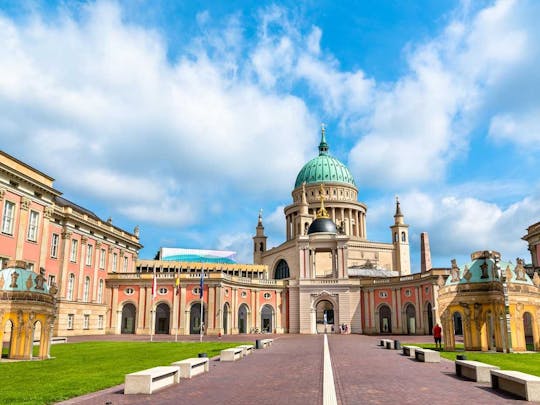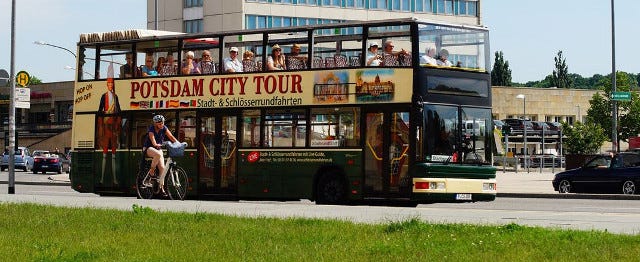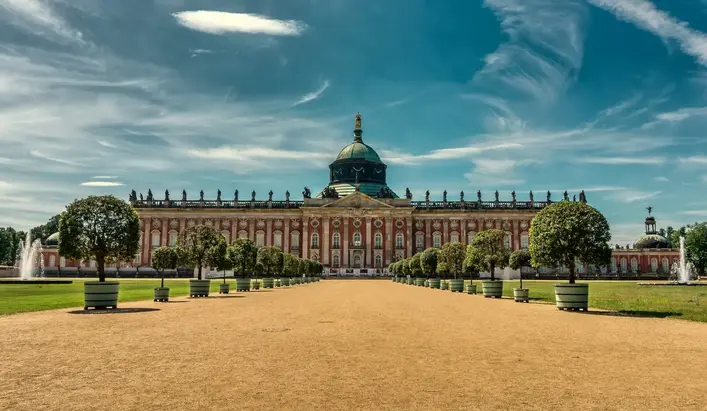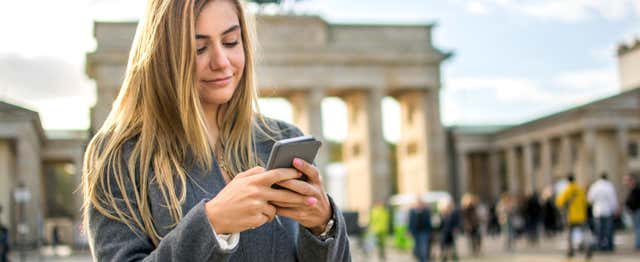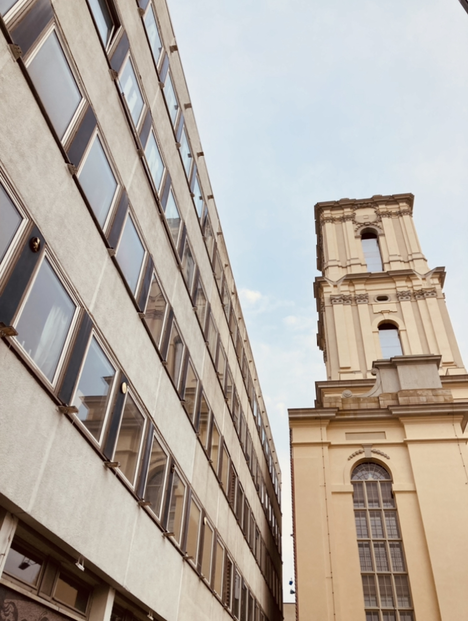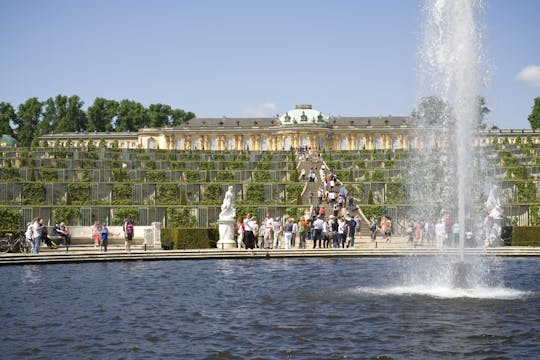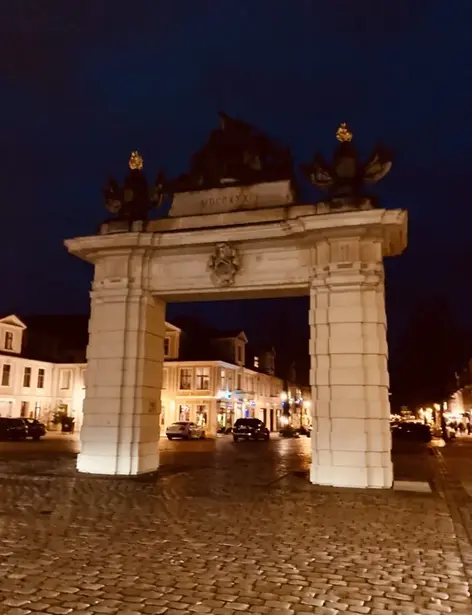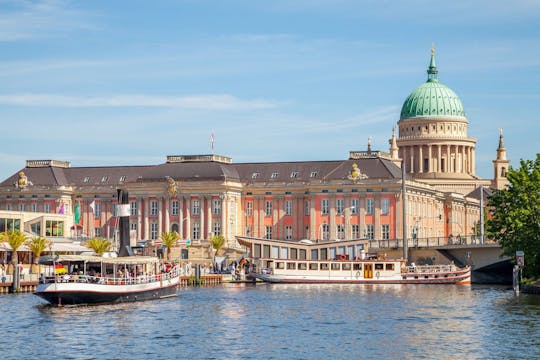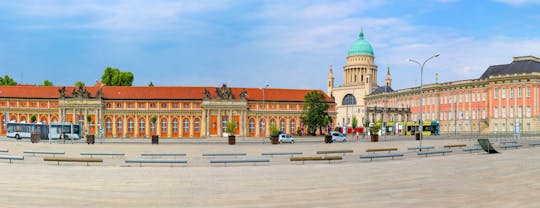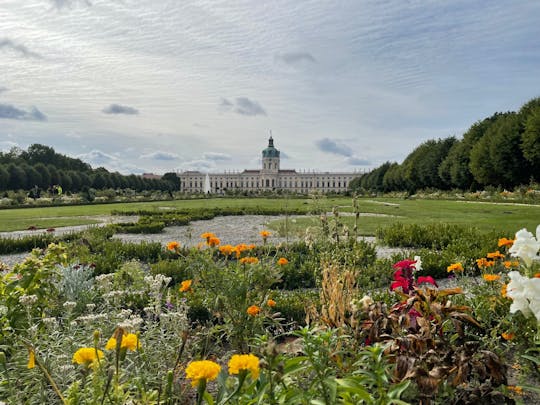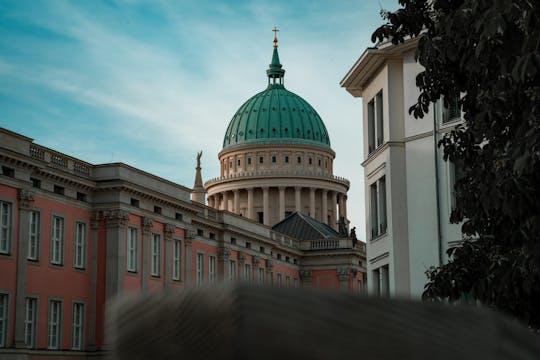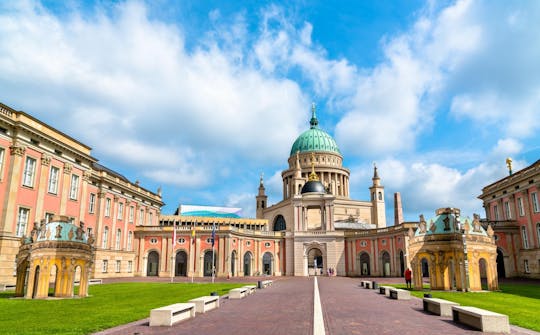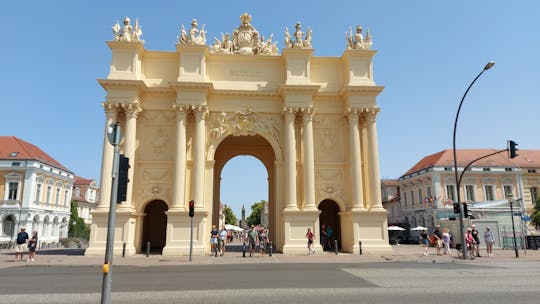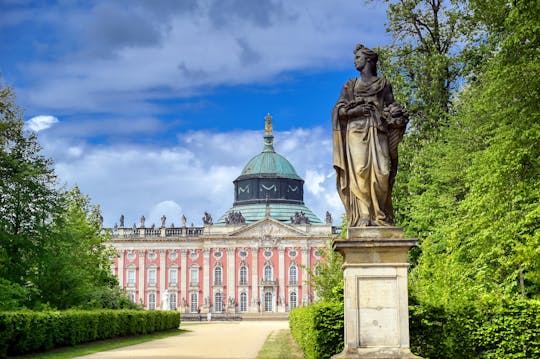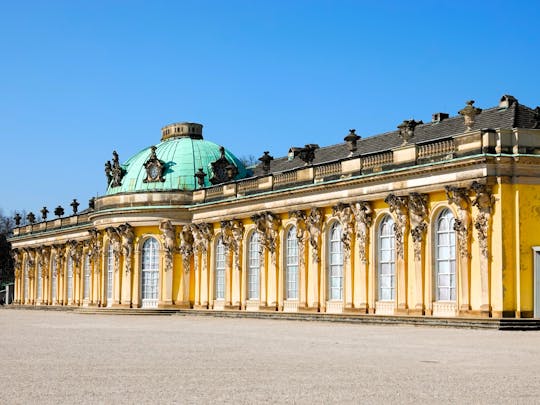Things to Do in Potsdam
In past centuries Potsdam was considered one of the most important Prussian cities. Today, surrounded by 19 lakes and the picturesque river Havel surprises the visitors with history, breathtaking Sanssouci Palaces and numerous gardens and parks.
The damages caused by the allied bombings in 1945 and the subsequent Potsdam Conference held in the city straight after the war, have completely changed its character. During the guided tour of 3.5 hours, we will delve into this fascinating history of ancient splendor, the destruction during the war and the impressive reconstruction in the German reunification era.
Our tour starts Am Alten Markt square next to the 16 m high obelisk devoted to the 4 brilliant Prussian architects, next to the representative St. Nicholas Church (St. Nikolaikirche).This is where we will learn about the Hohenzollern dynasty, under which the city flourished in culture, art, and architecture. Afterwards, we will continue covering the most important points, such as Saint Peters and Paul’s Church, enchanting Dutch Quarter, Brandenburger Street and some historic city gates. We will talk about famous habitants of Potsdam: Voltaire, Humboldt and Einstein. The tour concludes in front of the emblematic Sanssouci Palaces – a great symbol of the affection for art, architecture and nature of its founder Prussian King Frederic the Great.
Behind the facades of Potsdam - Learn about the machinations of our ancestors during a 90-minute tour of Potsdam's city center.
During the tour, you will visit backyards that tourists rarely see and hear both entertaining and outrageous stories that no one else tells you about Potsdam.
Are you ready for the dark side of the city? Sign up now. I look forward to meeting you.
With our travel insurance, you can travel with peace of mind and focus solely on unwinding and enjoying your holiday. Don't let anything spoil your trip!
Learn about the legal atrocities committed by our ancestors during a 90-minute evening stroll through Potsdam's dark city center. Be there as bizarre stories of our Prussian kings come to life in the hidden backyards, and let's visit together the place where the darkest chapter in German history began.



